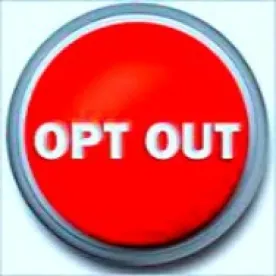On November 3, 2015, Judge Alsup of the Northern District of California denied Cricket Wireless’s motion to enforce an arbitration clause against customers who say they never saw or agreed to the clause.
Plaintiffs allege that Cricket falsely advertised “UNLIMITED 4G/LTE services throughout the United States” when the network was capable of providing that coverage only in limited geographic regions. Each plaintiff purchased wireless services and a phone at a Cricket-owned store in 2013. The relevant arbitration clause appeared in the middle of a “Quick Start Guide” included in the boxes containing plaintiffs’ new phones, as well as in small print on a separate handbook available in stores titled “My Cricket Guide.” Other materials also stated that certain terms and conditions apply to use of Cricket’s services including, for example, the boxes the phones came in, which included small print text on one panel stating that terms and conditions of Cricket’s service were enclosed in the box.
However, because the Quick Start Guide, subtitled “A Simple Guide To Activating Your Phone,” lacked any indication on the face of the guide that it was contractual in nature, the Court found this was insufficient to place plaintiffs on notice of the document’s terms and conditions. This problem was exacerbated by the fact that Cricket employees opened the boxes before giving them to plaintiffs and activated plaintiffs’ phones for them, obviating the need for purchasers to review the Quick Start Guide at all and, according to the Court, signaling to purchasers that it was unimportant to review the text on the box before activating the service. The Court also found that plaintiffs had no reason to look at the other in-store materials, and plaintiffs’ contentions that they never received those materials were sufficient for the Court to deny Cricket’s motion.
Not all of defendants’ arguments were met with the sounds of soft chirping. Defendants disputed the credibility of plaintiffs’ declarations that they never reviewed any of the other materials in the Cricket store that would have informed them that certain terms and conditions applied to their service with Cricket. The Court, finding that this was an issue that could not be resolved as a matter of law, ordered a summary trial, currently scheduled to take place in January 2016, to resolve these credibility issues. If that trial is resolved in defendants’ favor, Cricket may yet hop out from under this putative class action. And even if plaintiffs prevail in the summary trial, the Court noted that ultimately, any certified class might be limited to those customers whose phones were unboxed and activated by Cricket employees. Cricket has also appealed the District Court’s decision to the Ninth Circuit. Stay tuned to our blog for further developments.




 />i
/>i

